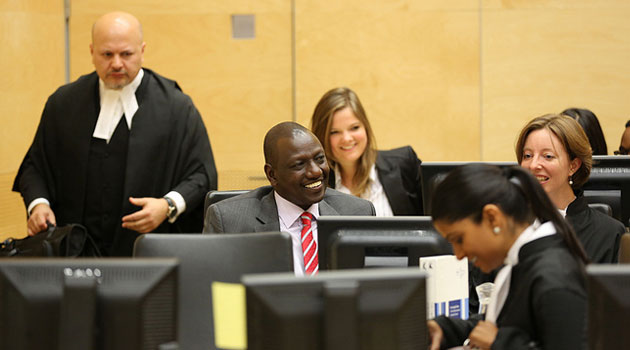
The envelope contained a list of suspected post-poll violence perpetrators prepared by the Commission of Inquiry on Post Election Violence (CIPEV) under the leadership of Justice Philip Waki/FILE
NAIROBI, Kenya, Mar 31 – It all started at the footsteps of Harambee House when former International Criminal Court (ICC) Prosecutor Moreno Ocampo in November 2009 announced that he would initiate investigations proprio motu (on his own volition) into the 2007/8 Post Election Violence (PEV) in Kenya.
It was the first time in the history of the ICC that a prosecutor took his own initiative to investigate a situation.
In the presence of former President Mwai Kibaki and former Prime Minister Raila Odinga, Ocampo announced that he would investigate Kenya after he received a sealed and highly secretive envelope from former UN Secretary General Kofi Annan who chaired the Africa Union Panel of Eminent African Personalities that negotiated a power deal between Kibaki and Odinga.
The envelope contained a list of suspected post-poll violence perpetrators prepared by the Commission of Inquiry on Post Election Violence (CIPEV) under the leadership of Justice Philip Waki.
On March 31, 2010, the ICC Pre-Trial Chamber authorised Ocampo to open formal investigations against individuals listed in the envelope which so far has remained a top secret.
A year later (March, 2011), the Pre-Trial Chamber summoned six Kenyans, three believed to be affiliated with Kibaki’s government and his Party of National Unity (PNU) – President Uhuru Kenyatta, former Police Commissioner Hussein Ali and former Head of Civil Service Francis Muthaura.
From the Orange Democratic Movement (ODM), Deputy President William Ruto, journalist Joshua arap Sang and former Industrialisation Minister Henry Kosgey were listed.
On January 23, 2012, the Pre-Trial Chamber II in a majority ruling acquitted Ali and Kosgey and committed President Kenyatta, Ruto, Muthaura and Sang to trial on grounds that there was sufficient evidence to prove their criminal liability of the political violence that wracked the country after the disputed 2007 presidential poll that left over 1,000 people dead and over 650,000 others displaced.
READ: Kosgey, Ali free at last in ICC saga
But, the late judge Hans-Peter Kaul in his dissenting opinion held to his earlier opinion that the Kenyan cases did not warrant the intervention of the war crimes court.
“I remain convinced and reiterate that the crimes and atrocities described by the prosecutor in the amended Document Containing the Charges (DCC) concerning Mr Muthaura and Mr Kenyatta fall within the competence of the Kenyan criminal justice authorities as a matter to be investigated and prosecuted under Kenyan criminal law forthwith,” Kaul said.
In June 2012, Ocampo who by the time had become a controversial subject in Kenya retired after nine years of service.
READ: Ocampo left Luis Moreno-Ocampo bids the ICC goodbye
In March 2013, ICC Prosecutor Fatou Bensouda requested to withdraw charges against Muthaura due to lack of evidence and witnesses, leaving President Kenyatta as the sole suspect accused of implementing a ‘joint common plan’ in the attacks in Nakuru and Naivasha.









































